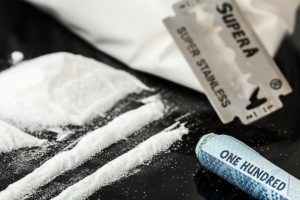The Strong Defense
You Deserve
Possess All The Facts About Florida’s Drug Possession Laws

Drug possession is a major area of interest for law enforcement in Florida, and the laws governing the possession of drugs are somewhat intricate. Here’s what you need to know about drug possession laws in Florida.
Basics
Florida drug laws specify that possessing certain drugs that you did not manufacture, distribute, or sell is a crime. Florida law specifies five categories, or “schedules,” of drugs that are illegal to possess, and each schedule has its own set of penalties for those convicted of possessing any of the drugs on it.
Elements
Florida’s laws on drug possession specify three elements that the state must prove to obtain a conviction on drug possession.
- The substance is illegal – typically this element is met via scientific analysis by a crime lab showing that the substance found at the time of arrest is in fact a drug on one of the five drug schedules.
- The defendant knew it was illegal – here the state must show that the defendant either knew or should have known that the illegal substance they possessed was in fact illegal.
- The defendant was in control of the drug – the prosecution must show that the defendant was in possession of the illegal drug, whether by physically holding it on his person or by constructive possession, which means it was in a location under the defendant’s control, like a vehicle or structure for which he had a key.
Penalties
The penalties for drug possession in Florida depend largely upon which schedule the drug in question is listed under. For most Schedule I and II drugs, possession is a second degree felony, which may be a prison sentence of up to 15 years. However, for a handful of Schedule I and II drugs, the penalty is a third degree felony, which is punishable by up to 5 years in prison.
If the drug possessed by the defendant is a Schedule III or Schedule IV drug, a conviction is a third degree felony as well. Conviction of possession of a Schedule V drug is a first degree misdemeanor, which could lead to a jail sentence of up to one year.
Defenses
There are several defenses against a charge of drug possession in Florida.
- Lack of knowledge – if a defendant can show that he was legitimately unaware that the drug was a controlled substance, he may defeat a charge of drug possession.
- Prescription – as many of the drugs listed on Florida’s schedules have legitimate therapeutic uses, having a prescription for the drug is a valid defense to drug possession.
- Entrapment – in some cases law enforcement goes too far in drug sting operations and convinces a defendant to possess a drug despite his initial unwillingness. The defense of entrapment can be used to obtain an acquittal in these cases.
- Fourth Amendment violation – although a defendant may legitimately be in possession of a drug he knows to be illegal, the failure of police to use proper procedures in obtaining that evidence can be used to exclude some or all of the evidence obtained in the investigation, making an acquittal on the charge of drug possession significantly more likely.
- Medical marijuana – as Florida has exceptions for therapeutic cannabis use, showing the court that the defendant possesses it pursuant to those laws will lead to an acquittal as well.


